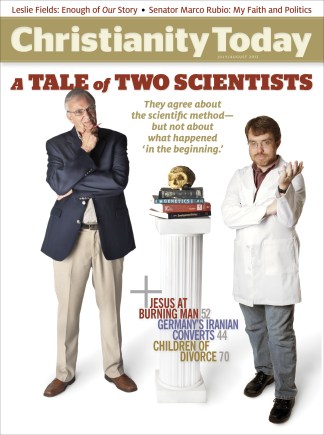Richard J. Mouw startled many in the Christian world with a seven-minute speech in November 2004 that detailed how evangelicals had “sinned against Mormons.” By that, the president of Fuller Theological Seminary meant evangelicals had misrepresented what Mormons believed in order to critique them. Mouw, a longtime participant in Mormon interfaith dialogues, has spent endless hours defending his statements to evangelical friends and colleagues. He continues this outreach in Talking with Mormons: An Invitation to Evangelicals (Eerdmans). Salt Lake Tribune religion reporter Peggy Fletcher Stack spoke with Mouw on the evolving nature of Latter-day Saint (LDS) theology, where it touches and where it diverges from historic Christianity, and how believers can systematically consider faiths outside the Christian fold.
Why do you think understanding LDS beliefs is more than just being nice but about being obedient to God?
One thing that really upsets me is when evangelicals say, “We don’t have time for dialogue with Mormons and all the niceties. We have to stand up for the truth and denounce error.” They fail to recognize that if we are to be people of the truth, we need to be sure we are criticizing Mormons for what they really believe, lest we commit the serious sin of bearing false witness against our neighbors. To be concerned about the truth means we ourselves better be sure we are being truthful, to listen to others and really understand before we tell them that they’re wrong.
What are your chief theological differences with Mormons? Have those changed over years of discussions with Mormons?
Mormons deny the Trinity, but they talk about “the three Persons of the Godhead.” They say that God has a humanlike form, but they sing “How Great Thou Art” (which is in the Mormon hymn-book). Other basic differences include issues like baptism, temple worship, and authority. Evangelicals emphasize the Bible alone, while Mormonism not only adds scriptures, but also sees the scriptures themselves as an expression of a prophetic office restored in the early 19th century.
We have to make a distinction, though, between the “working theology” of Mormonism today and its previous declarations. In the past, they put much more emphasis on good works. The most important development in recent decades has been an increasingly strong emphasis on the substitutionary atonement of Christ on the cross.
Why do you not classify Mormonism as a cult?
Cult often connotes secrecy, duplicity, and a rigid “one true church” mentality. None of that really fits present-day Mormonism, which scholars instead call a “new religious movement.” Ordinary Mormons love Billy Graham. They read Christianity Today as a helpful resource for their own growth in faith. Many Mormon scholars enjoy attending evangelical-sponsored theology conferences. None of this is true of Jehovah’s Witnesses, Scientology, or Hare Krishna, which are typically described as “cults.”
How have you come to understand Mormon founder Joseph Smith?
The Joseph Smith topic is the most difficult one for evangelicals. Many see him as Satan-inspired, or—with equal hostility—as a deceiver or a deluded person. I obviously do not see him as an inspired prophet delivering messages from God. To focus on the character of Smith and his claims about himself diverts us from talking about the central issue of what Mormons have taught about sin, redemption, and the person and work of Jesus Christ. I find those teachings to contain some elements of biblical orthodoxy—along with other teachings that I find off the charts.
What do you say to those who believe that understanding Mormonism is tantamount to legitimizing or even endorsing a heretical faith?
Mormonism is not historic orthodox Christianity—that is true by its own admission. I like the assessment of Jan Shipps, a Methodist who has written much about Mormonism. Mormon thought, she says, is to Christianity what Christian thought is to Judaism—some continuity and much discontinuity. To engage in probing dialogue with Mormons about matters of eternal importance is not “endorsing” or “legitimizing” their system of thought. But it is to take it seriously as a movement that we need to understand better—and to be more truthful about.
How would you craft a better theology of interfaith engagement?
I have two rules for interfaith dialogue: First, don’t tell people what they believe; ask them and listen carefully to what they say. Second, don’t pit the best things in your perspective against the worst things in their perspective. For me, that has meant acknowledging to Mormons some of our evangelical defects, as well as admitting to some good things in Mormonism. We need to account for the many wonderful people in other religious traditions. Instead of just criticizing religious movements and their founders, we need to understand their teachings and the communities built around them.










